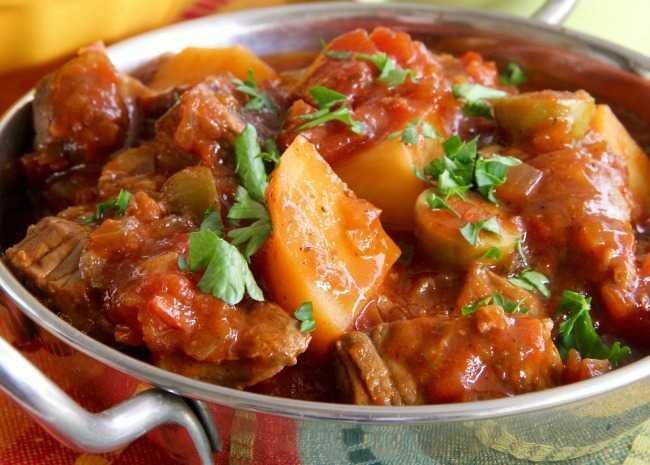How To Make The Best Slow Cooker Meals
10 Tips to Make the Best Slow Cooker Meals
Every slow cooker behaves differently—you may have to adjust cooking times depending on whether yours runs hotter, cooler, faster, or slower. You'll get to know your own machine the more you use it. In any case, these tips will help you get better results no matter what make or model you're using.
- Browning is better. Slow cooker recipes don't always instruct you to brown meat before adding it to the pot, but there are some advantages to doing so. If you sear meat to a crusty brown with a little oil in a hot skillet, the meat develops more complex flavors and improves the dish. And if you dredge the meat in flour before you brown it, your sauce will thicken up to make a gravy. You should always brown ground beef or any ground meat in a skillet before adding it to your slow cooker to prevent the meat from clumping up or from adding excess grease to your cooked dish.

Cut with care. Chopping and slicing ingredients into same-size pieces helps them cook evenly. For example, cut dense root vegetables like carrots and potatoes into pieces of the same size so they'll all be finished cooking at the same time. Do the same thing if you're cutting up meats.
Layers, layers, layers. Put sturdy vegetables like onions, carrots, and potatoes on the bottom of the slow cooker. Place the meat on top. More fragile vegetables that cook quickly, such as peas, mushrooms, zucchini, or spinach, can go in towards the end of the cooking time.
Go light on liquids. Because slow cookers are used with the lids on, liquids don't evaporate—they just collect inside the lid and baste the food. This can lead to soupier results than you might have wanted. If you're adapting your favorite recipes from the stovetop or oven to the slow cooker, decrease the amount of liquid you use. You can always stir in a little extra liquid towards the end if your dish is starting to dry out.
Leave room. The rule of thumb is to fill your slow cooker between halfway to two-thirds full, but do check your owner's manual. Filling your slow cooker to the very top can affect how the heat penetrates the food.
Heat and time. The slow cooker is one of the few cooking methods where you can cut the cooking time by turning up the temperature and still get great results. If something takes 10 hours on the "low" setting, you can safely cook it for 5 hours on the "high" setting with very similar results.
No peeking. Don't lift the lid unless the recipe tells you to (e.g., to cook off excess moisture). Lifting the lid releases moisture and heat, and slows down cooking. Every time you lift that lid, add another 15 to 20 minutes to the cooking time. Get a model with a glass top if you absolutely must see what's going on. No lifting the lid to stir while the food's cooking, either. It's really not necessary unless the recipe says otherwise. Having said that, you can partially or fully uncover the food if you need to cook off extra moisture during the last half hour of the cooking cycle.
Smart spice. Whole spices such as bay leaves, peppercorns, or cinnamon sticks will give slow cooker items a very intense flavor if left in the pot for the entire cooking time, so use them sparingly. Ground spices as well as fresh and dried herbs, on the other hand, can lose much of their flavor if allowed to simmer for several hours in the slow cooker. It's better to add these items during the last two hours of cooking if you can manage it.
Dairy dos and don'ts. Stir in yogurt, sour cream, and milk during the last few minutes to keep their smooth texture from breaking and separating.
Freshen up. Brighten flavors at the end with salt and pepper, lemon juice, or vinegar. A handful of fresh chopped parsley, basil, or other leafy herbs are good, too.
Hi! I am a robot. I just upvoted you! I found similar content that readers might be interested in:
http://dish.allrecipes.com/slow-cooking-is-good-cooking/
Source
Plagiarism is the copying & pasting of others work without giving credit to the original author or artist. Plagiarized posts are considered spam.
Spam is discouraged by the community, and may result in action from the cheetah bot.
More information and tips on sharing content.
If you believe this comment is in error, please contact us in #disputes on Discord
!cheetah ban
Part of multiple account scam & farm group.
Okay, I have banned @satellitesister.